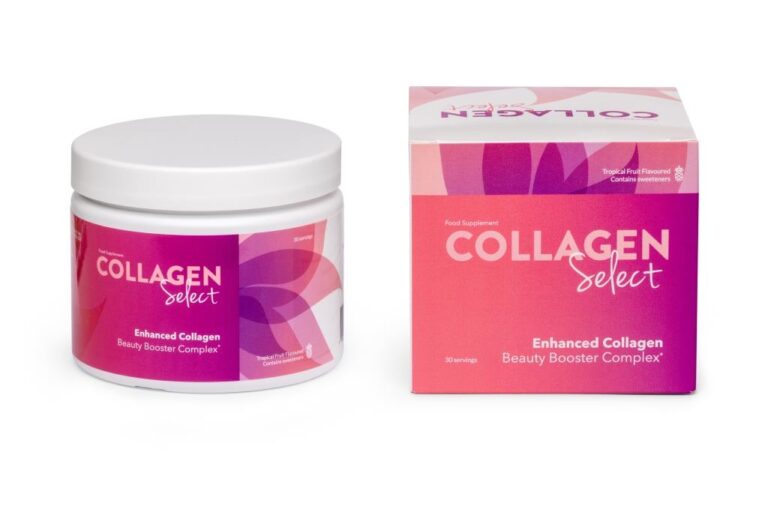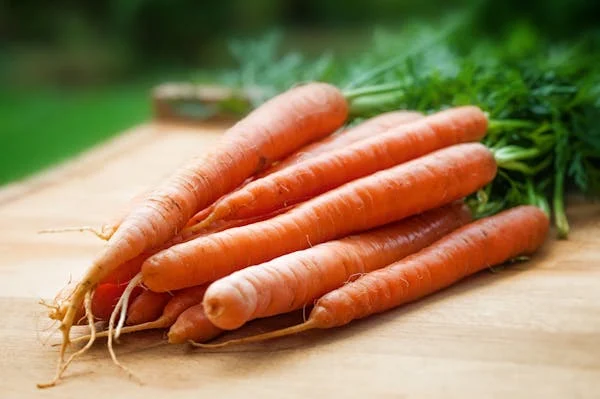Introduction:
Are you aware that the solution to managing your blood pressure might be sitting right in your spice rack? Turmeric, a common spice found in kitchens around the world, has been gaining attention for its potential to lower blood pressure. Let’s delve into the science behind this everyday spice and explore how it can benefit your cardiovascular health.
Understanding Blood Pressure:
Blood pressure is a fundamental aspect of cardiovascular health, representing the force exerted by circulating blood against the walls of the arteries. This force is necessary for delivering oxygen and nutrients to tissues throughout the body. Blood pressure is typically measured in millimeters of mercury (mmHg) and consists of two readings: systolic pressure and diastolic pressure.
Systolic pressure measures the force exerted by the blood against the artery walls when the heart contracts and pumps blood out during each heartbeat. It is the top number in a blood pressure reading. Diastolic pressure, on the other hand, measures the force exerted by the blood against the artery walls when the heart is at rest between beats. It is the bottom number in a blood pressure reading.
Maintaining optimal blood pressure levels is crucial for overall health and well-being. When blood pressure remains within a healthy range, it ensures that vital organs, such as the brain, heart, and kidneys, receive an adequate supply of oxygenated blood. However, when blood pressure becomes too high (hypertension) or too low (hypotension), it can lead to various health complications.
Hypertension, or high blood pressure, is a prevalent health condition that affects millions of people worldwide. It is often referred to as the “silent killer” because it typically does not cause noticeable symptoms until it reaches advanced stages. Over time, untreated hypertension can damage blood vessels, strain the heart, and increase the risk of serious conditions such as heart disease, stroke, and kidney disease.
Conversely, hypotension, or low blood pressure, can also pose health risks, particularly if it causes symptoms such as dizziness, lightheadedness, fainting, or fatigue. While occasional episodes of low blood pressure may not be cause for concern, persistent hypotension may indicate an underlying medical issue that requires evaluation and treatment.
Maintaining healthy blood pressure levels involves a combination of lifestyle modifications, dietary choices, and, in some cases, medication. Regular physical activity, maintaining a healthy weight, limiting sodium intake, reducing stress, and avoiding excessive alcohol consumption are all key factors in blood pressure management.
By understanding the significance of blood pressure and adopting proactive measures to keep it within a healthy range, individuals can safeguard their cardiovascular health and reduce the risk of associated complications. Taking control of blood pressure is a vital step towards achieving overall wellness and longevity.

The Spice That Packs a Punch:
Turmeric, scientifically known as Curcuma longa, is a rhizomatous herbaceous perennial plant belonging to the ginger family, native to the Indian subcontinent and Southeast Asia. Revered for centuries in traditional Ayurvedic and Chinese medicine, turmeric has garnered widespread recognition for its remarkable health-promoting properties.
At the heart of turmeric’s potency lies its primary active compound, curcumin. This bioactive substance is responsible for the vibrant golden-yellow hue of turmeric and is believed to be the source of many of its therapeutic benefits. Curcumin is endowed with powerful anti-inflammatory, antioxidant, antimicrobial, and anticancer properties, making it a versatile and valuable addition to both culinary and medicinal practices.
In traditional medicine systems such as Ayurveda, turmeric has been revered as a sacred herb with a myriad of healing properties. It has been used to alleviate various ailments, including digestive disorders, respiratory conditions, skin problems, and joint pain. Moreover, turmeric has been employed as a natural remedy for promoting overall well-being and vitality.
Beyond its traditional uses, modern scientific research has shed light on the numerous health benefits of turmeric, particularly its potential to support cardiovascular health. Studies have demonstrated that curcumin possesses vasodilatory effects, meaning it can help widen blood vessels and improve blood flow. This property is of particular interest in the context of blood pressure management, as it can contribute to lowering blood pressure levels and reducing the risk of hypertension-related complications.
Furthermore, curcumin exhibits antioxidant activity, which helps neutralize harmful free radicals and protect cells from oxidative damage. Oxidative stress is a contributing factor to endothelial dysfunction, a condition characterized by impaired blood vessel function and an increased risk of hypertension and cardiovascular disease. By combating oxidative stress, curcumin may help maintain endothelial health and support optimal blood pressure regulation.
In addition to its direct effects on blood pressure, turmeric offers a holistic approach to cardiovascular wellness by addressing underlying factors that contribute to hypertension. Its anti-inflammatory properties help reduce chronic inflammation, a key driver of cardiovascular disease. By modulating inflammatory pathways, curcumin may help alleviate vascular inflammation and promote arterial health, thereby contributing to lower blood pressure levels and improved cardiovascular outcomes.
Overall, turmeric emerges as a potent and multifaceted spice that packs a punch when it comes to supporting cardiovascular health. Whether consumed as a culinary ingredient, brewed into a comforting tea, or taken as a dietary supplement, turmeric offers a natural and effective solution for promoting healthy blood pressure levels and enhancing overall well-being. Incorporating turmeric into your daily routine is a simple yet powerful step towards achieving optimal cardiovascular health and longevity.
Scientific Evidence:
Recent scientific research has provided compelling evidence supporting the potential of turmeric, specifically its active compound curcumin, in reducing blood pressure levels and promoting cardiovascular health. Numerous studies, including clinical trials and experimental research, have investigated the mechanisms by which turmeric exerts its effects on blood pressure regulation.
One notable study published in the American Journal of Hypertension conducted a meta-analysis of randomized controlled trials to evaluate the effects of curcumin supplementation on blood pressure. The analysis concluded that curcumin supplementation significantly reduced both systolic and diastolic blood pressure levels compared to a placebo, indicating its efficacy in lowering blood pressure.
Furthermore, research has highlighted the various mechanisms through which curcumin may exert its blood pressure-lowering effects. Curcumin has been found to enhance endothelial function, which refers to the ability of the blood vessels to dilate and constrict in response to changes in blood flow. By improving endothelial function, curcumin helps promote healthy blood circulation and reduce the resistance to blood flow, thereby lowering blood pressure.
Additionally, curcumin possesses potent anti-inflammatory properties that play a crucial role in cardiovascular health. Chronic inflammation is closely linked to the development of hypertension and other cardiovascular diseases. Curcumin acts as a natural anti-inflammatory agent by inhibiting inflammatory pathways and reducing the production of pro-inflammatory cytokines, which contribute to vascular dysfunction and high blood pressure.
Moreover, curcumin exhibits antioxidant properties that help protect against oxidative stress, a key contributor to endothelial dysfunction and vascular damage. Oxidative stress occurs when there is an imbalance between the production of free radicals and the body’s antioxidant defenses, leading to cellular damage and inflammation. By scavenging free radicals and enhancing antioxidant activity, curcumin helps mitigate oxidative stress and maintain vascular health.
Several animal studies have also provided valuable insights into the cardiovascular benefits of curcumin. These studies have demonstrated that curcumin supplementation can improve cardiac function, reduce arterial stiffness, and inhibit the progression of atherosclerosis, a condition characterized by the buildup of plaque in the arteries. These findings further support the potential of curcumin as a therapeutic agent for preventing and managing hypertension and cardiovascular disease.
Overall, the scientific evidence overwhelmingly supports the role of turmeric, particularly its active component curcumin, in lowering blood pressure and promoting cardiovascular health. By incorporating turmeric into their diets or taking curcumin supplements, individuals may harness the natural benefits of this spice to support healthy blood pressure levels and reduce the risk of cardiovascular complications. However, further research is warranted to fully elucidate the mechanisms of action and optimal dosing strategies for achieving maximal therapeutic effects.

Incorporating Turmeric into Your Diet:
Transitioning to a healthier lifestyle doesn’t have to be daunting. With its vibrant color and distinct flavor, turmeric can easily become a staple ingredient in your culinary repertoire. Here are some practical tips for adding turmeric to your diet and reaping its potential health benefits:
- Spice Up Your Cooking: Turmeric is a versatile spice that can enhance the flavor and color of a wide range of dishes. Start by incorporating turmeric into your favorite recipes, such as curries, stews, soups, and rice dishes. Its warm, earthy flavor pairs well with ingredients like garlic, ginger, cumin, and coriander, adding depth and complexity to your meals.
- Blend Into Smoothies: Give your morning smoothie a nutritional boost by adding a teaspoon of turmeric powder. Combine turmeric with fruits like bananas, mangoes, or berries, along with leafy greens, almond milk, and a dash of black pepper to enhance absorption. The subtle bitterness of turmeric blends seamlessly with the sweetness of fruits, creating a refreshing and nutritious beverage.
- Brew Turmeric Tea: Turmeric tea, also known as golden milk or turmeric latte, is a soothing and nourishing beverage that’s perfect for relaxation and wellness. To make turmeric tea, simply heat milk (dairy or plant-based) with a teaspoon of turmeric powder, a pinch of cinnamon, and a touch of honey or maple syrup for sweetness. Enjoy this warming drink as a comforting bedtime ritual or as a midday pick-me-up.
- Season Roasted Vegetables: Elevate the flavor of roasted vegetables by tossing them with a mixture of turmeric, olive oil, sea salt, and your favorite herbs and spices before baking. Turmeric adds a vibrant hue and subtle warmth to roasted cauliflower, sweet potatoes, carrots, and Brussels sprouts, transforming them into flavorful and nutritious side dishes.
- Sprinkle on Salads and Soups: Add a sprinkle of turmeric powder to salads, soups, and dressings to boost both the flavor and nutritional content of your meals. Turmeric pairs well with fresh greens, tomatoes, cucumbers, and avocados, adding a pop of color and a hint of spice to your salads. In soups and dressings, turmeric blends seamlessly with other ingredients, enhancing the overall taste and aroma.
- Experiment with Turmeric Paste: Turmeric paste, made by simmering turmeric powder with water or milk and a pinch of black pepper, is a versatile ingredient that can be used in various recipes. Use turmeric paste as a base for curry sauces, marinades, dips, and spreads, or spread it onto toast or crackers for a nutritious snack. Turmeric paste can also be mixed with honey or yogurt for a simple yet potent remedy for colds and sore throats.
By incorporating turmeric into your daily diet in creative and delicious ways, you can harness the health-promoting properties of this ancient spice and support your overall well-being. Whether you’re cooking a flavorful curry, sipping on a soothing turmeric latte, or adding a sprinkle of turmeric to your favorite dishes, embracing turmeric as a dietary staple is a simple and effective way to nourish your body and enhance your culinary experience.
Other Health Benefits:
Turmeric offers more than just blood pressure support. Its anti-inflammatory properties make it beneficial for relieving joint pain and arthritis symptoms. Additionally, turmeric’s antioxidant properties help protect against chronic diseases and support overall immune function. By incorporating turmeric into your daily routine, you can enjoy a myriad of health benefits beyond blood pressure management.
Precautions and Considerations:
While turmeric is generally safe for most people when consumed in moderate amounts, it may interact with certain medications or exacerbate existing health conditions. Individuals taking blood-thinning medications or with gallbladder issues should exercise caution when consuming turmeric supplements. It’s always best to consult with a healthcare professional before making any significant dietary changes, especially if you have underlying health concerns.
FAQs:
- Can turmeric replace my blood pressure medication? While turmeric shows promise for blood pressure management, it’s essential to work with your healthcare provider to determine the best treatment plan for your individual needs. Turmeric can complement conventional treatment methods but should not replace prescribed medications without medical supervision.
- Are there any side effects associated with turmeric consumption? Turmeric is generally safe for most people when consumed in culinary amounts. However, high doses or long-term use of turmeric supplements may cause gastrointestinal discomfort or interact with certain medications. It’s advisable to consult with a healthcare professional before starting any new supplement regimen.
Conclusion: Unleashing the Potential of Turmeric for Cardiovascular Health
In conclusion, turmeric emerges as a promising natural solution for lowering blood pressure and supporting overall cardiovascular health. With its potent anti-inflammatory and antioxidant properties, turmeric offers a holistic approach to managing hypertension and reducing the risk of heart disease and stroke. By incorporating turmeric into your daily diet and lifestyle, you can take proactive steps towards achieving optimal blood pressure levels and enjoying long-term well-being.




